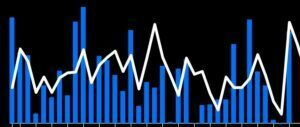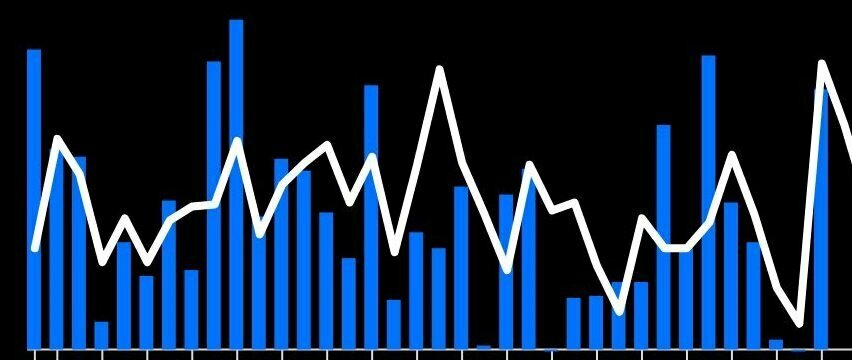As we discuss capital market, quite often we hear about debt market as well. Though equity market is more prominent, debt market is lesser known among retail investors. It is also known as bond market or fixed income market. In recent time debt market is getting significant attention due to various reasons.

What is debt market?
The capital market broadly deals with two type of financial instrument equity and debt. Equity is a financial instrument which is categorised as shareholders money in financial statements of the company. Equity is not paid back to investors in normal circumstance. But can be transferred from one investor to another.
The debt instrument is a financial product through which company raises funds from investors. It has a specific tenure. On expiry of this tenure, it has to be paid back to its holder along with interest as promised at the initial stage. Its a loan or debt for the issuer.
Like equity, the debt instrument holder can also change before the expiry of the tenure. This is facilitated through stock exchange and RBI platforms.
The market of offering debt instrument, its buy and sell, is known as debt market.
History of debt Markets
The history of debt market goes back to 2400 B.C. when merchants used artifact as a guarantee for repayment and consequence of not repaying. In 17th century, debt instruments were widely used to raise fund for rebuilding war torn England. Dutch East India Company issued first corporate bond in 1623. Later, USA and British Empire widely used debt instrument to raise funds from public to fight world war I.
Type of debt instruments
There are different type of debt instruments in debt market. They are Bond, Debenture, Certificate of Deposits (CD), Commercial Paper (CP) or Promissory Note, bill of exchange, Treasury bill etc.
All debentures are bond. But all bonds are not debenture. Generally, bonds are backed by security, whereas debenture are not. Bonds, CD, CP, bill of exchange are issued by large corporate, institutions and government agencies. These are issued for corporate finance and short term in nature. Treasury bills or T-bill are issued by RBI on behalf of Government. Through T-bill, Government raise funds for its different schemes and projects.
Debentures are issued by smaller companies. These are issued for funding projects or operations and long term in nature. There are two type of debentures – Convertible and non-convertible debentures (NCD). The convertible debenture get converted to equity after certain time.
There is another type of instrument – Debt mutual funds. It is a mutual fund whose corpus is invested in different debt instrument as per the objective of the scheme.
How debt market works?
Bonds, CD, CP etc are regulated by RBI and SEBI. The issuing company after fulfilling the norms have to notify in public domain for subscription by investors. These types of instruments are subscribed by corporate, banks, financial institute etc. Also, they may be listed at NSE-RFQ platform for trading.
Debenture is regulated by Securities Exchange Board of India (SEBI). The process of issuance of debenture is similar to share market.
A company after deciding to raise fund through debenture approach SEBI, for necessary approval. The company thereafter goes out to market with the Initial Public Offer (IPO) of debenture. They advertise, approach institutions who are potential investors and hold meetings at different places for public awareness. Institutions and public apply for debenture of the company either through banks, brokers and trading platforms.
One need to have a dematerialised or demat account with the custodians to apply for debenture. During the IPO process, the company has to appoint a registrar of investors. The registrar will finalise the number of debentures to be allotted to each investor depending upon the number of debentures offered and number of debentures applied for. This process is known as allotment.
An investor may or may not get as many debentures applied for. The allotted debentures will be credited to demat account of the investor. The debentures are then listed with stock exchange.
If an investor proposes to sale the debentures or purchase new debentures, he or she has to approach a broker. Now a days many trading platforms are available wherein the investor can place order for buy and sale online.
The broker or trading platform find the buyer or sellers in stock exchange and carry out the transaction.
Advantage and disadvantage of debt market
Advantages of debt market
- A fixed return is paid at a regular interval
- Investment is short term in nature.
- The principal is returned at the end of tenure.
- Risk level is low.
- Rated by rating agencies
- Bonds are backed by security.
- It is tradeable in stock exchange.
Disadvantage of debt market
- There is market risk of company not performing well
- There is interest risk of going up and thereby earning less return
- As compared to equity return on debt instrument is low
- All debt instruments are not available for retail investors
Differences between equity market and debt market
| Category | Equity market | Debt market |
| Nature of investment | Investment in equities or shares of a company become part of the capital of the company. | Investment in the debt instruments amounts to giving debt or loan to the company. |
| Title of investor | Investment in equities give ownership and voting rights to the investor | Investment in debt instruments, the investor become creditor to the issuer. |
| Returns | The returns depend upon performance of the company and market demand. | The return is based on promise at the beginning, performance of the company and performance of debt market. |
| Risks | The risk level is high | The risk level is low to moderate |
| Regulator | Equity markets are regulated by SEBI | Debt markets are regulated by SEBI and RBI |
| Taxation | Gain received from equity market are taxed as capital gain tax and dividend tax | Interest received from debt instruments are taxable as per capital gain norms. |
Is it advisable to invest in debt market?
Considering the pros and cons of debt market, it is definitely advisable to invest in debt market. As we could see from above, debt market is less risky. Though return is also low, it will neutralise the risk in equity investment. The best approach is to invest in a mix of equity and debt instrument. As we age the proportion to equity should be reduced as increase in debt instrument investment.
What to consider before investing debt market?
The most important think to know before investing in debt instrument is its rating. Any debt instrument made available for public investment has to be rated by a rating agency. It is advisable not to invest in any instrument which is rated average or below average.
The reputation of the issuing company, its promoter and purpose of raising fund are also equally important. If any company is promising abnormal return, it needs to be closely examined for its capability. There are many companies who raise funds promising very high return, but fail to pay later.

